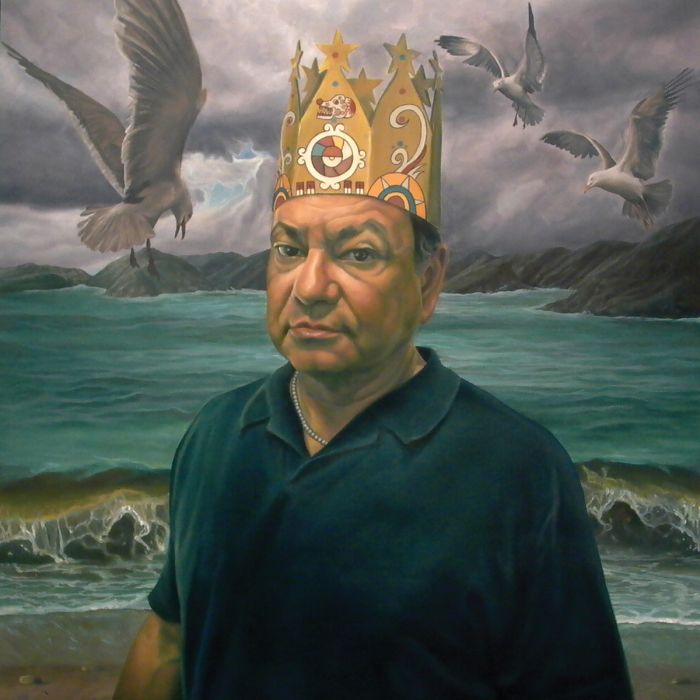Finding the Strength to do What is Necessary: Maggie Nelson Lectures on the Relationship Between Art and Care
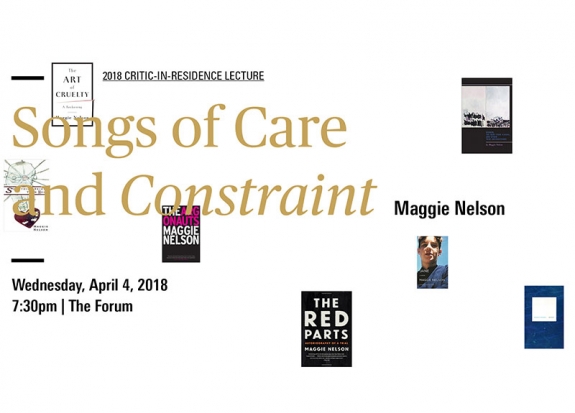
During the lecture, which was free and open to the public, Nelson regaled a packed house with nearly an hour of reading from an upcoming book, and then fielded questions from the audience on subjects ranging from Buddhism to vulnerability to the responsibility of the artist when creating using public funds.
Nelson read from three separate segments of a chapter in her unpublished book dealing with care and the responsibility of the artist. “Art does not need to address a political referendum to be considered art, as though politics is the only part of life that matters, or makes life worthwhile,” Nelson said. And there’s a difficulty in asking artists to care about the personal hurt or harm that may come to someone partaking of abstract art or fiction, Nelson said.
Nelson reflected that art is and should be a subjective experience—an artist (with exceptions) can’t always know ahead of time what could be hurtful to one person consuming their artwork. But at the same time, there exists an ethical bond between the artist and the audience. “The ethical responsibility of the artist doesn’t end with the finished project out in the world,” Nelson said.
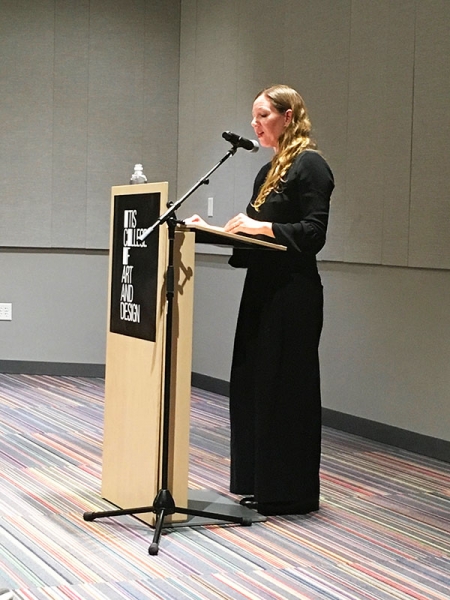
Consider your audience, but don’t hedge your creativity
“Maggie Nelson allows herself to go to very vulnerable places in her own work, and that’s something I find very inspiring. Being able to push yourself to expose the parts of yourself you’re most afraid of exposing — that’s what pushes her work to the next level,” said Nicole Bradford, a second-year masters of fine arts Writing student, who attended the lecture. Indeed, as Nelson encouraged to the artists present at the talk: “Art is no place to take cover.” And this was the crux of the consideration she’d put into the notion of care in art: how to establishing a caring relationship to art, to your community, to yourself, while not shying away from what your artistic practice and output demands of you.
One sphere where the consideration of reception, and thus the notion of the care and wellbeing of those who receive an artist’s work, is the realm of social media, Nelson said. When an artist gets too enmeshed in the world of social media, which by necessity becomes a dialogue with the people receiving your posts, then she is dragged into the realm of “being responsible to legions of the faceless,” Nelson said. It’s almost always a trap for an artist, Nelson warned, one that leads away from the self-analysis and interior life necessary for the wellspring of creativity that leads to artistic output.
Nelson’s work is often heavily laden with theory, criticism, and other poets and writers that help illuminate her own ideas and experience of the question at hand. During the reading, Nelson cited a wide expanse of thinkers encompassing Jose Munoz, Claudia Rankine, Joshua Weiner, and Langston Hughes, among many others.
Bringing Nelson to campus is part of the ongoing Critic-in-Residence fellowship lecture series put on by the Fine Arts department, which brings a different, widely known and influential artist and critic every year for a public lecture. The Critic-in-Residence fellowship began in 2001, and features an outstanding critic whose lecture is meant to contribute to the cultural and artistic lives of the campus, the students, and the surrounding Los Angeles artistic community.
Maggie Nelson is the author of nine books of poetry and prose, many of which have become cult classics defying categorization. Her nonfiction titles include the New York Times bestseller and National Book Critics Circle Award winner, The Argonauts (2015), The Art of Cruelty: A Reckoning (2011; a New York Times Notable Book of the Year), Bluets (2009; named by Bookforum as one of the top 10 best books of the past 20 years), The Red Parts (2007; reissued 2016), and Women, the New York School, and Other True Abstractions (2007).
Her poetry titles include Something Bright, Then Holes (2007, reissue 2018) and Jane: A Murder (2005; finalist for the PEN/ Martha Albrand Art of the Memoir). She writes frequently on art, including recent catalogue essays on Carolee Schneemann, Matthew Barney, and Sarah Lucas. She has been the recipient of a Guggenheim Fellowship in Nonfiction, an NEA in Poetry, an Innovative Literature Fellowship from Creative Capital, and an Arts Writers Fellowship from the Andy Warhol Foundation. In 2016, she was awarded a MacArthur “genius” grant. After 12 years at CalArts, in 2017 she became a Professor of English at USC. She lives in Los Angeles.
Related News
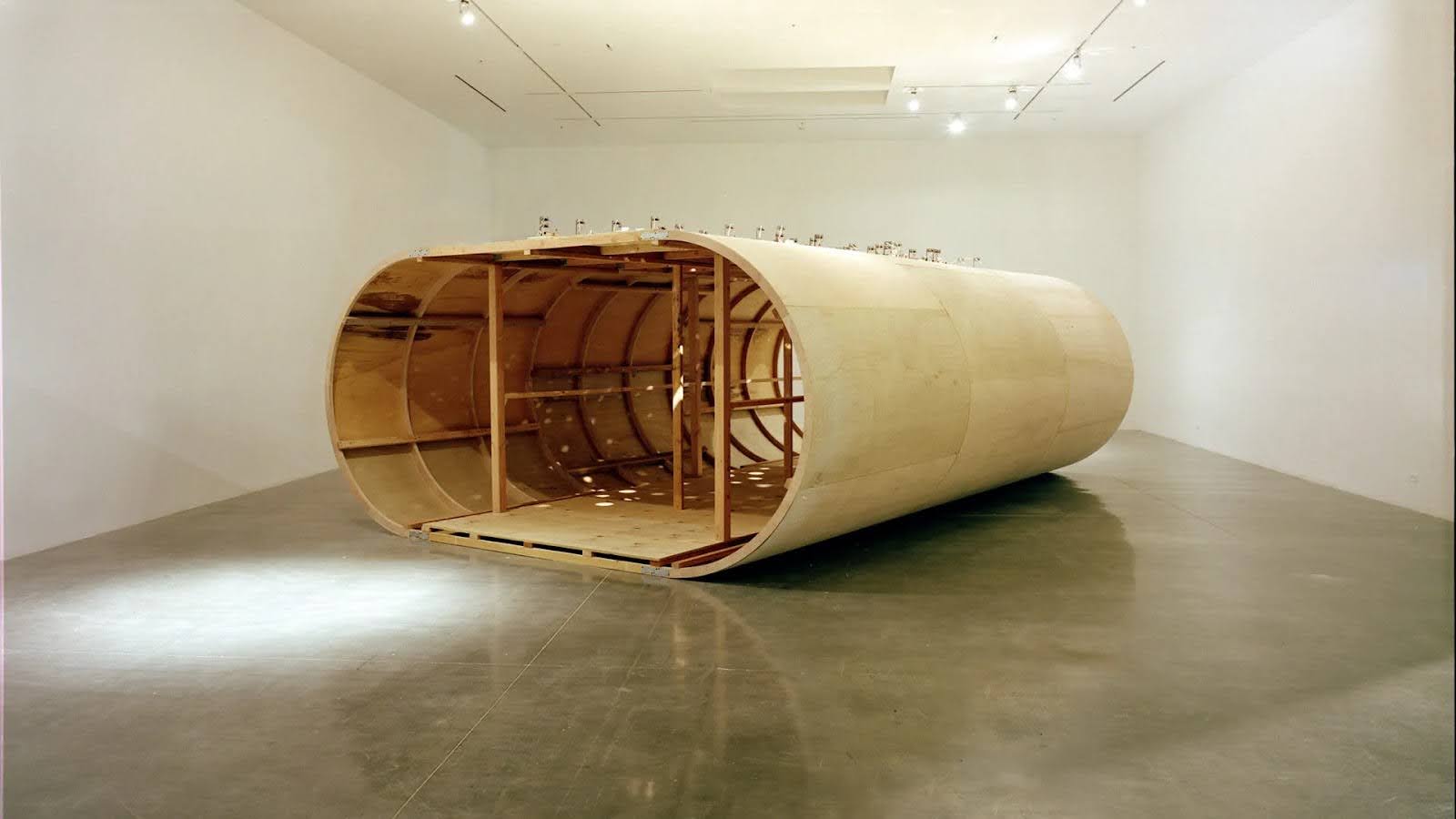
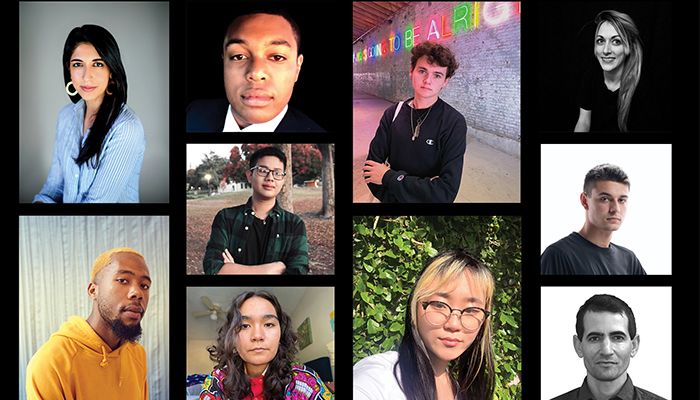
Otis Design Lab Offers Real-World Experience to Otis College Students
December 08, 2023
